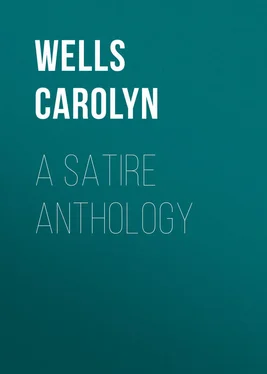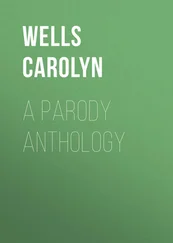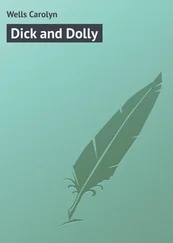Carolyn Wells - A Satire Anthology
Здесь есть возможность читать онлайн «Carolyn Wells - A Satire Anthology» — ознакомительный отрывок электронной книги совершенно бесплатно, а после прочтения отрывка купить полную версию. В некоторых случаях можно слушать аудио, скачать через торрент в формате fb2 и присутствует краткое содержание. Жанр: Юмористические книги, foreign_humor, на английском языке. Описание произведения, (предисловие) а так же отзывы посетителей доступны на портале библиотеки ЛибКат.
- Название:A Satire Anthology
- Автор:
- Жанр:
- Год:неизвестен
- ISBN:нет данных
- Рейтинг книги:5 / 5. Голосов: 1
-
Избранное:Добавить в избранное
- Отзывы:
-
Ваша оценка:
- 100
- 1
- 2
- 3
- 4
- 5
A Satire Anthology: краткое содержание, описание и аннотация
Предлагаем к чтению аннотацию, описание, краткое содержание или предисловие (зависит от того, что написал сам автор книги «A Satire Anthology»). Если вы не нашли необходимую информацию о книге — напишите в комментариях, мы постараемся отыскать её.
A Satire Anthology — читать онлайн ознакомительный отрывок
Ниже представлен текст книги, разбитый по страницам. Система сохранения места последней прочитанной страницы, позволяет с удобством читать онлайн бесплатно книгу «A Satire Anthology», без необходимости каждый раз заново искать на чём Вы остановились. Поставьте закладку, и сможете в любой момент перейти на страницу, на которой закончили чтение.
Интервал:
Закладка:
Various
A Satire Anthology
NOTE
Acknowledgment is hereby gratefully made to the publishers of the various poems included in this compilation.
Those by Oliver Wendell Holmes, James Russell Lowell, John G. Saxe, Edward Rowland Sill, John Hay, Bayard Taylor and Edith Thomas are published by permission of Messrs. Houghton, Mifflin & Co.
The poems by Anthony Deane and Owen Seaman are used by arrangement with John Lane.
Through the courtesy of Small, Maynard & Co., are included poems by Bliss Carman, Charlotte Perkins Stetson-Gilman, Stephen Crane, and Frederic Ridgely Torrence.
Poems by Sam Walter Foss are published by permission of Lothrop, Lee & Shepherd Co.
The Century Co. are the publishers of poems by Richard Watson Gilder and Mary Mapes Dodge.
Frederich A. Stokes Company give permission for poems by Gelett Burgess and Stephen Crane.
“The Buntling Ball,” by Edgar Fawcett is published by permission of Funk and Wagnalls Company; “Hoch der Kaiser” by Rodney Blake, by the courtesy of the New Amsterdam Book Co. The poems by James Jeffrey Roche by permission of E. H. Bacon & Co.; and “The Font in the Forest” by Herman Knickerbocker Vielé, by permission of Brentano’s.
“The Evolution of a Name,” by Charles Battell Loomis, is quoted from “Just Rhymes,” Copyright, 1899, by R. H. Russell.
“He and She,” by Eugene Fitch Ware, is published by permission of G. P. Putnam’s Sons.
INTRODUCTION
SATIRE, though a form of literature familiar to everyone, is difficult to define. Partaking variously of sarcasm, irony, ridicule, and burlesque, it is exactly synonymous with no one of these.
Satire is primarily dependent on the motive of its writer. Unless meant for satire, it is not the real thing; unconscious satire is a contradiction of terms, or a mere figure of speech.
Secondarily, satire depends on the reader. What seems to us satire to-day, may not seem so to-morrow. Or, what seems satire to a pessimistic mind, may seem merely good-natured chaff to an optimist.
This, of course, refers to the subtler forms of satire. Many classic satires are direct lampoons or broadsides which admit of only one interpretation.
Literature numbers many satirists among its most honoured names; and the best satires show intellect, education, and a keen appreciation of human nature.
Nor is satire necessarily vindictive or spiteful. Often its best examples show a kindly tolerance for the vice or folly in question, and even hint a tacit acceptance of the conditions condemned. Again, in the hands of a carping and unsympathetic critic, satire is used with vitriolic effects on sins for which the writer has no mercy.
This lashing form of satire was doubtless the earliest type. The Greeks show sardonic examples of it, but the Romans allowed a broader sense of humour to soften the satirical sting.
Following and outstripping Lucilius, Horace is the acknowledged father of satire, and was himself followed, and, in the opinion of some, outstripped by Juvenal.
But the works of the ancient satirists are of interest mainly to scholars, and cannot be included in a collection destined for a popular audience. The present volume, therefore, is largely made up from the products of more recent centuries.
From the times of Horace and Juvenal, down through the mediæval ages to the present day, satires may be divided into the two classes founded by the two great masters: the work of Horace’s followers marked by humour and tolerance, that of Juvenal’s imitators by bitter invective. On the one side, the years have arrayed such names as Chaucer, Swift, Goldsmith, and Thackeray; on the other, Langland, Dryden, Pope, and Burns.
A scholarly gentleman of our own day classifies satires in three main divisions: those directed at society, those which ridicule political conditions, and those aimed at individual characters.
These variations of the art of satire form a fascinating study, and to one interested in the subject, this small collection of representative satires can be merely a series of guide-posts.
It is the compiler’s regret that a great mass of material is necessarily omitted for lack of space; other selections are discarded because of their present untimeliness, which deprives them of their intrinsic interest. But an endeavour has been made to represent the greatest and best satiric writers, and also to include at least extracts from the masterpieces of satire.
It is often asked why we have no satire at the present day. Many answers have been given, but one reason is doubtless to be found in the acceleration of the pace of life; fads and foibles follow one another so quickly, that we have time neither to write nor read satiric disquisitions upon them.
Another reason lies in the fact that we have achieved a broader and more tolerant human outlook.
Again, the true satirist must be possessed of earnestness and sincerity. And it is a question whether the mental atmosphere of the twentieth century tends to stimulate and foster those qualities.
These explanations, however, seem to apply to American writers more especially than to English.
The leisurely thinking Briton, with his more personal viewpoint, has produced, and is even now producing, satires marked by strength, honesty, and literary value.
But America is not entirely unrepresented. The work of James Russell Lowell cannot suffer by comparison with that of any contemporary English author; and, though now forgotten because dependent on local and timely interest, many political satires written by Americans during the early part of the nineteenth century show clever and ingenious work founded on a comprehensive knowledge of the truth.
Yet, though the immediate present is not producing masterpieces of satire, the lack is partially made up by the large quantity of really meritorious work that is being done in a satirical vein. In this country and in England are young and middle-aged writers who show evidences of satiric power, which, though it does not make for fame and glory, is yet not without its value.
CHORUS OF WOMEN
THEY’RE always abusing the women,
As a terrible plague to men;
They say we’re the root of all evil,
And repeat it again and again —
Of war, and quarrels, and bloodshed,
All mischief, be what it may.
And pray, then, why do you marry us,
If we’re all the plagues you say?
And why do you take such care of us,
And keep us so safe at home,
And are never easy a moment
If ever we chance to roam?
When you ought to be thanking Heaven
That your plague is out of the way,
You all keep fussing and fretting —
“Where is my Plague to-day?”
If a Plague peeps out of the window,
Up go the eyes of men;
If she hides, then they all keep staring
Until she looks out again.
A WOULD-BE LITERARY BORE
IT chanced that I, the other day,
Was sauntering up the Sacred Way,
And musing, as my habit is,
Some trivial random fantasies,
When there comes rushing up a wight
Whom only by his name I knew.
“Ha! my dear fellow, how d’ye do?”
Grasping my hand, he shouted. “Why,
As times go, pretty well,” said I;
“And you, I trust, can say the same.”
But after me as still he came,
“Sir, is there anything,” I cried,
“You want of me?” “Oh,” he replied,
“I’m just the man you ought to know:
A scholar, author!” “Is it so?
For this I’ll like you all the more!”
Then, writhing to escape the bore,
I’ll quicken now my pace, now stop,
Интервал:
Закладка:
Похожие книги на «A Satire Anthology»
Представляем Вашему вниманию похожие книги на «A Satire Anthology» списком для выбора. Мы отобрали схожую по названию и смыслу литературу в надежде предоставить читателям больше вариантов отыскать новые, интересные, ещё непрочитанные произведения.
Обсуждение, отзывы о книге «A Satire Anthology» и просто собственные мнения читателей. Оставьте ваши комментарии, напишите, что Вы думаете о произведении, его смысле или главных героях. Укажите что конкретно понравилось, а что нет, и почему Вы так считаете.












